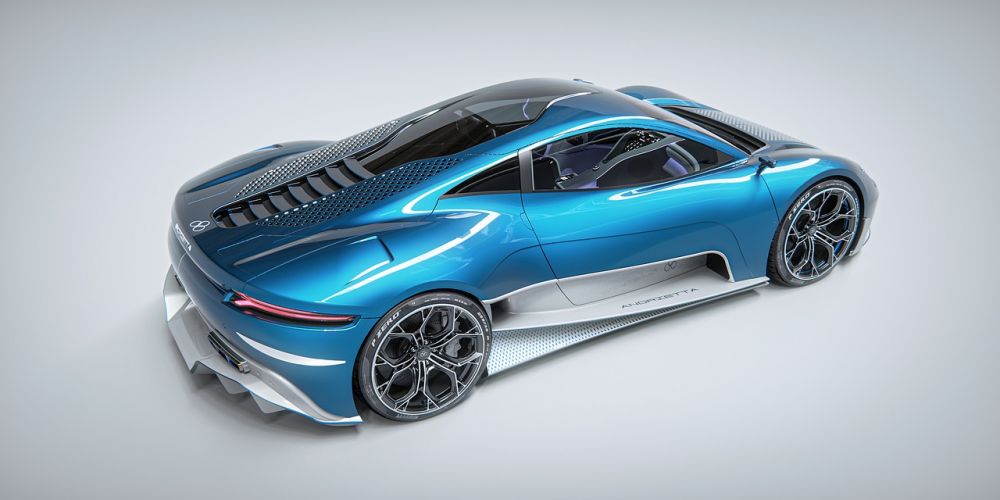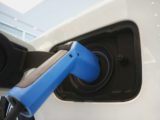BMW’s Electric Cars: A Comprehensive Guide for Car Enthusiasts

Introduction:
The automobile industry has witnessed a significant shift towards electric vehicles in recent years. Among the key players in the market, BMW stands out for its commitment to producing high-quality electric cars. In this article, we will provide an in-depth overview of BMW’s electric cars, exploring their different types, popularity, quantitative measurements, variations, historical development, and crucial factors considered by car enthusiasts when making a purchase decision.
1.
Overview of BMW Electric Cars

:
BMW’s electric cars are a part of their ”i” sub-brand, which focuses on sustainable mobility. These vehicles incorporate advanced technology to offer efficient and eco-friendly transportation. From sleek sedans to versatile SUVs, BMW offers a diverse range of electric cars that cater to various consumer preferences. These cars are designed to deliver both performance and sustainability, making them an attractive option for environmentally conscious drivers.
2.
Types and Popularity of BMW Electric Cars
:
BMW offers two main types of electric cars: all-electric and plug-in hybrids. All-electric models run solely on electricity and have a battery-powered motor, while plug-in hybrids combine an electric motor with an internal combustion engine. The popularity of BMW’s electric cars can be attributed to their exceptional driving experience, stylish design, and cutting-edge technology. Models like the BMW i3 and BMW i8 have gained considerable attention in the market and have contributed to BMW’s reputation as a leader in electric vehicle innovation.
3.
Quantitative Measurements of BMW Electric Cars
:
Quantitative measurements play a crucial role in assessing the performance and capabilities of electric cars. BMW’s electric vehicles are known for their impressive acceleration, with models like the BMW i4 boasting a 0-60 mph time of under 5 seconds. Additionally, the range of BMW’s electric cars varies depending on the model and battery capacity, with some models offering ranges of over 250 miles on a single charge. Charging times are another important aspect, with BMW offering fast-charging capabilities that can charge the battery to 80% in approximately 40 minutes.
4.
Differences Between BMW Electric Cars
:
Although all BMW electric cars share the common goal of sustainability, they differ in terms of design, performance, and purpose. For example, the BMW i3 is a compact city car designed for urban commuting, while the BMW i8 is a sports car that combines electric power with high-performance capabilities. Additionally, factors such as range, battery size, and charging infrastructure compatibility also differentiate BMW’s electric car models.
5.
Historical Overview of Pros and Cons of BMW Electric Cars
:
Over the years, BMW’s electric cars have evolved, and so have their advantages and disadvantages. In the early stages, limited range and lack of charging infrastructure were major drawbacks. However, advancements in battery technology and the establishment of a widespread charging network have addressed many of these concerns. Today, the pros of BMW electric cars include zero tailpipe emissions, lower maintenance costs, and potential incentives, while the cons still revolve around range anxiety, charging infrastructure limitations, and higher initial costs.
6.
Crucial Factors Considered by Car Enthusiasts
:
When it comes to purchasing a BMW electric car, car enthusiasts consider several factors. These include range, performance, charging infrastructure availability, brand reliability, and design. The range is crucial, as it determines the car’s usability for daily commutes or longer trips. Performance, both in terms of acceleration and handling, is also a significant consideration. The availability and accessibility of charging stations play a role in alleviating range anxiety, while brand reliability assures customers of the vehicle’s build quality and after-sales support. Lastly, design is a matter of personal preference, with BMW’s electric cars offering sleek and futuristic aesthetics.
Conclusion
:
BMW’s electric cars have made a significant impact in the market, combining sustainable technology with exceptional performance. With a diverse range of models, BMW caters to various consumer preferences, establishing its position as a leader in electric vehicle innovation. As the electric car industry continues to grow, BMW remains committed to expanding its electric vehicle lineup and driving the sustainable mobility revolution forward.
Overview of BMW Electric Cars
Types and Popularity of BMW Electric Cars
Quantitative Measurements of BMW Electric Cars
Differences Between BMW Electric Cars
Historical Overview of Pros and Cons of BMW Electric Cars
Crucial Factors Considered by Car Enthusiasts
Conclusion
FAQ
What are some popular BMW electric car models?
What are the crucial factors considered by car enthusiasts when buying a BMW electric car?
What are the types of electric cars offered by BMW?
Fler nyheter
Hitta din perfekta begagnade bil i Vimmerby hos Skobes
Introduction: The automobile industry has witnessed a significant shift towards electric vehicles in recent years. Among the key players in the market, BMW stands out for its commitment to producing high-quality electric cars. In this article, we wil...
Lotta Alberius
22 juni 2024
Mountainbike i Göteborg
Introduction: The automobile industry has witnessed a significant shift towards electric vehicles in recent years. Among the key players in the market, BMW stands out for its commitment to producing high-quality electric cars. In this article, we wil...
Renate Degerth
20 juni 2024
Hitta din perfekta elcykel på nätet
Introduction: The automobile industry has witnessed a significant shift towards electric vehicles in recent years. Among the key players in the market, BMW stands out for its commitment to producing high-quality electric cars. In this article, we wil...
Maja Bergman Lindberg
09 juni 2024
Hitta den rätta bilverkstaden för ditt fordon
Introduction: The automobile industry has witnessed a significant shift towards electric vehicles in recent years. Among the key players in the market, BMW stands out for its commitment to producing high-quality electric cars. In this article, we wil...
Maja Bergman Lindberg
07 juni 2024











